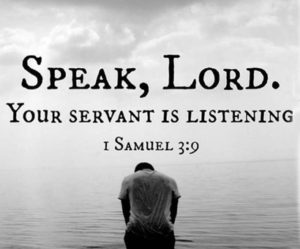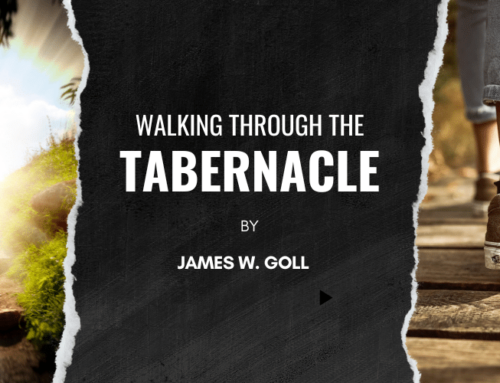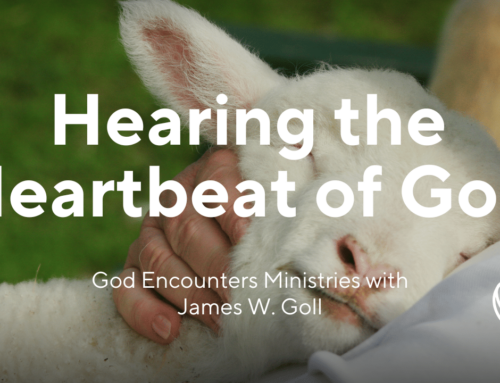Have you ever felt like you were too small to be used by God? If so, you are in good company. God is in the business of taking infinitely small things, mixing them with his amazing nature by the power of His Spirit, and then making something extraordinary. No matter where you’ve come from or how small your beginnings, God wants to grant you discernment to receive revelation from him and then bring the kingdom to bear on the time and place in which you live.
Scripture is full of people who felt they were too small to be used of God. Even the Apostle Paul, who wrote more of the Bible than any other author, felt this way. In one verse he writes, “For I am the least of the apostles and do not even deserve to be called an apostle, because I persecuted the church of God.” (I Corinthians 15:9), and in another he says, “Although I am less than the least of all the Lord’s people, this grace was given me: to preach to the Gentiles the boundless riches of Christ…” (Ephesians 3:8).
Small Beginnings
I often refer to myself as being like the prophet Amos, due to my similar obscure background and the nature of my prophetic calling. I grew up in Cowgill, Missouri, which had a population of 259 at that time, and is now even smaller. My family was not prestigious. No famous person has ever come from Cowgill, and there are no mega-churches or institutions of higher learning there. It is a community in farm country, where people work hard for a living. In other words, absolutely nothing in my geographical, familial, or social background could have prepared me for the prophetic commission that I have been pursuing for my entire adult life. But as prophet Cindy Jacobs likes to say, “God knows!”
 Back in Old Testament Judah, Amos started out as a “nobody,” too—his family was not part of the nobility, he had never been associated with any school of the prophets, and he didn’t grow up in urbane surroundings but in a rural setting where he took care of sheep:
Back in Old Testament Judah, Amos started out as a “nobody,” too—his family was not part of the nobility, he had never been associated with any school of the prophets, and he didn’t grow up in urbane surroundings but in a rural setting where he took care of sheep:
“I was no prophet, nor was I a son of a prophet, but I was a sheep-breeder and a tender of sycamore fruit. Then the Lord took me as I followed the flock, and the Lord said to me, “Go, prophesy to My people Israel.” (Amos 7:14-15 NKJV)
Amos had never expected to hear God’s voice, and he had not anticipated becoming a prophet. However, he obeyed his prophetic calling, and he applied himself to learning what he needed to know to be faithful to that calling. He is best known for making public a word about how God was setting a “plumb line” in the nation of Israel to measure the truth and righteousness of the people and their rulers. The Spirit of God gave him this vision:
The Plumb Line of the Word of the Lord
“The Lord was standing by a wall that had been built true to plumb, with a plumb line in his hand. And the Lord asked me, ‘What do you see, Amos?’ ‘A plumb line,’ I replied. Then the Lord said, ‘Look, I am setting a plumb line among my people Israel; I will spare them no longer.’” (Amos 7:7-8)
God’s plumb line is all-important, not only for aligning crooked human life with His perfect uprightness, but also for discerning His voice in the first place. Amid all the noise of the world, we need to be able to distinguish God’s voice clearly. God wants you to know what He is saying, even if you never need to wear a prophet’s mantle in public.
Like Amos, I work hard to bring a plumb line that can help the people of God do everything according to the word of the Lord. Whether I write books or conduct seminars or lead prayer gathering, I endeavor to operate to the best of my ability according to what He has taught me. My primary resource, of course, is the Word of God, the Bible. But years of personal experience have made a huge difference in how I have learned to apply the Word. The Holy Spirit is always active, and I try always to remain on the alert for His stirrings. The Spirit is our best teacher, and even as I present what I have learned about receiving and discerning what God reveals to His people, I want to be sensitive to new insights and new ways of communicating the Truth.
Learning to Receive and Discern Revelation from God
I want to pass down to you the keys that have been passed down to me. You too can learn how to receive revelation from God through your natural senses, such as sight and hearing, and how to open yourself up to supernatural senses through which you can know even better what God wants to show you. You can also learn discernment—what to do when Satan tries to infiltrate God’s message, and how to live a healthy, balanced, dynamic, discerning life of faith.
Each of us needs to become a discerner—no matter what our personal background or specific gift or function in the body of Christ. Although some believers are especially gifted as prophets, every follower of Jesus receives the gifts of revelation and discernment. And every believer needs to use them! In fact, without discernment and sensitivity to the Holy Spirit, we cannot progress in our use of any of the gifts and callings.
 In the final analysis, developing discernment is not so much about knowing the future as it is about bringing the kingdom of God to bear on the time and place in which you live. The gospel of John begins with the words, “The Word became flesh and dwelt among us…, full of grace and truth” (John 1:14), referring to the coming of Jesus Christ to earth. In a very real way, you and I bring God’s Word to dwell in the midst of the world as we remain sensitive to the flow of His Spirit. Through our relationship with God, we receive revelation. And as we bring that revelation to the world around us, we incarnate His Word in our very ordinary lives—just as Amos did.
In the final analysis, developing discernment is not so much about knowing the future as it is about bringing the kingdom of God to bear on the time and place in which you live. The gospel of John begins with the words, “The Word became flesh and dwelt among us…, full of grace and truth” (John 1:14), referring to the coming of Jesus Christ to earth. In a very real way, you and I bring God’s Word to dwell in the midst of the world as we remain sensitive to the flow of His Spirit. Through our relationship with God, we receive revelation. And as we bring that revelation to the world around us, we incarnate His Word in our very ordinary lives—just as Amos did.
God Wants to Do Something Extraordinary Through You!
No matter what your current station in life, or where you’ve come from, you can receive revelation and grow in spiritual discernment. God wants to use you powerfully as a plumb line of God’s word to everyone around you. Just as he has done in my life, the life of Amos or the Apostle Paul, God will mix his Spirit in with your smallness and make something extraordinary!







Thank you for sharing ‘when your smallness becomes extraordinary’….Father gave me marching orders 40 years ago…with Habbakuk 2:2 as encouragement about trusting ‘even if the Vision tarried…’that it would be right on time’…I’ve never given up on those words given to me…I know I’m still here and in good health because He is faithful to perform His Word…and that somehow I was born ‘For such a time as this’..it hurts my heart…the things you’ve had to suffer in recent years…but your faith abounds and it is my pleasure to stand with you and “See what the Lord has to say!” In the meantime…”All is well” and I look forward to meeting you face to face someday soon…Blessings to you as you go along the way..
Thank you for your encouragement! God is always faithful to perform His word. Blessings to you.